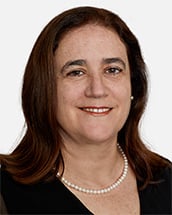In brief
The use of telemedicine in Spain has increased in recent years, and although there is currently no national regulation in this regard, it is possible to find sectoral provisions that provide guidance for its practice. In this sense, the companies that engage in telemedicine must take into account the legal implications that may affect them, such as data protection or the treatment of patient information.
In more detail
Overview of the situation of telemedicine in Spain
Telemedicine services in Spain have been immersed in a legal loophole for years, insofar as there are as yet no specific regulations governing them, but neither are they expressly prohibited. In this sense, they are activities to which several general regulations apply, especially those relating to data protection, cybersecurity, and information society services. Although for a long time, the regulation of telemedicine has not been a priority in Spain, this trend began to change following the pandemic caused by the spread of COVID-19 at the beginning of 2020, at which point telemedicine became a major point of concern for a large part of the country’s population, as an increasing number of people turned to this type of services in the face of the collapse of in-person healthcare.
As a consequence of this change on behalf of society, many companies in the healthcare and pharmaceutical sector saw a commercial opportunity and decided to invest in new telematic services to attend the medical needs of the population. In 2023, a fundamental step was taken, namely the inclusion of telemedicine in the new Code of Medical Ethics of the General Council of Medical Associations (hereinafter, the “Code“), published after several years of debate.
It should be noted that the previous edition of the Code dated back to 2011, and telemedicine was only acceptable as a second opinion in medical consultations or as an assistance in decision-making. By contrast, the use of telematic resources is now widely permitted without having to constitute a second medical opinion, provided that they comply with the remaining provisions of the Code, including the registration of the telematic means used to carry out the consultation in the patient’s medical record. Telemedicine can be used if the rights, confidentiality, and safety of patients and the autonomy of healthcare professionals are respected. Likewise, healthcare professionals using telematic means must always work on a scientific basis, following the criteria of professionalism, truthfulness, and prudence provided for in the Code.
Business considerations
In view of the above, telemedicine consultations in Spain still have room for regulatory development, which is to be expected in the near future, given the current increase in the use of telemedicine. The regulation of telemedicine is a growing need as society requires its use, so it would not be surprising if 2024 is when we finally see telemedicine and its regulatory framework being consolidated. Therefore, it is foreseeable that the companies that practice medicine through telematic means will have to evaluate, on the one hand, all those aspects that are inevitably intrinsic to them, such as considerations on patient data protection, the treatment of patient information or cybersecurity concerns and on the other hand, in cases where telemedicine is much more sophisticated than simple video calls, these companies will have to also review the correct regulation of apps or other software elements (including artificial intelligence functionalities) that may be used as part of the telemedicine service.
It is also important to bear in mind that the regulatory development of telemedicine must be carried out in accordance with current health regulations, as advances in this practice may give rise to new concerns related to the protection of patients’ autonomy rights. In this regard, it is possible that, for example, we may see new ways of granting the patient’s medical consent to the prescription and application of a treatment.
For more information or in case you need individual advice for your company, please contact our team of experts.




